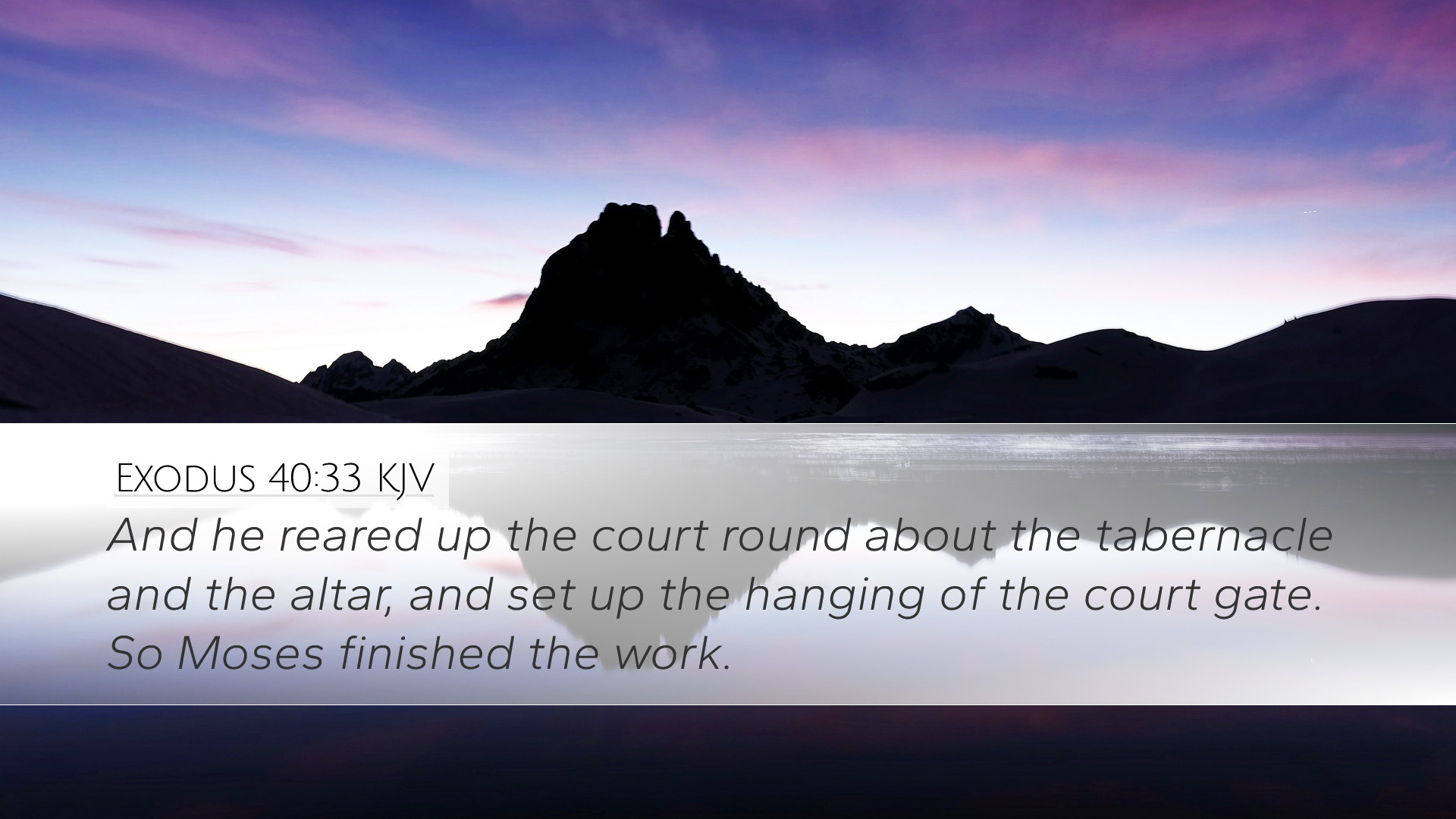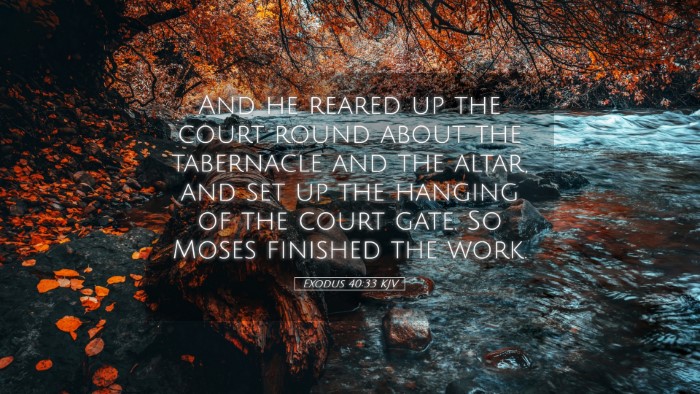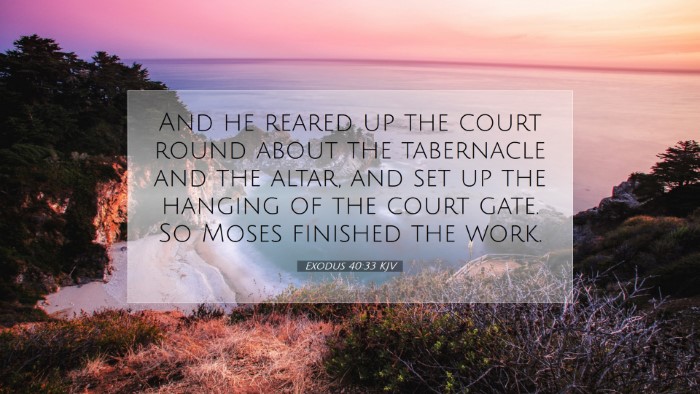Exodus 40:33 - Summary and Commentary
Verse: "And he reared up the court round about the tabernacle and the altar, and set up the hanging of the court gate. So Moses finished the work."
Contextual Background
The Book of Exodus captures the liberation of the Israelites from Egyptian bondage and their journey towards the Promised Land. In the latter chapters, particularly from chapter 25 onward, God provides specific instructions regarding the construction of the Tabernacle, a portable sanctuary meant for divine worship and symbolic of God's presence among His people. The culmination of this sacred endeavor is astutely captured in Exodus 40, marking the final touches to the Tabernacle and the establishment of proper worship.
Analysis of Exodus 40:33
Exodus 40:33 serves as a pivotal verse that highlights the completion of a monumental task: the assembly and consecration of the Lord's dwelling place on earth. This act represents not only a physical construction but a spiritual culmination of God's covenant with His people.
- Moses' Role: Moses, as the mediator and leader, exemplifies obedience and faithfulness in fulfilling God's commandments. His leadership is critical in ensuring that every detail aligns with divine instructions.
- The Significance of the Court: The construction of the court around the tabernacle and altar emphasizes the separation of the sacred from the profane. This division is essential in showing how God's presence is distinct and holy.
- The Hanging of the Court Gate: The gate acts as a physical and spiritual threshold that conveys the accessibility of God while maintaining reverence. It symbolizes the transition from the common to the sacred.
Theological Insights
The completion of the Tabernacle and its components is loaded with theological implications for both ancient Israel and contemporary believers.
- God’s Presence: The act of constructing the Tabernacle confirms God’s desire to dwell among His people. It exemplifies His commitment to relationship, showcasing the profound truth that God seeks to be known and encountered.
- Worship and Holiness: The meticulous preparation required in setting up the tabernacle highlights the holiness of worship. It demonstrates the need for reverence in approaching God and the sanctity of the worship environment.
- Fulfillment of God's Promises: The successful completion of the Tabernacle serves as a testament to God's faithfulness. Just as God promised to dwell among His people, its completion reaffirms His covenant and intentions.
Insights from Public Domain Commentaries
Matthew Henry: Henry notes that the completion of the work is an occasion for divine approval. He emphasizes that God does not dwell in a house made with hands, yet He chooses to reside among His people through the Tabernacle. This, he says, illustrates God's desire for closeness with humanity.
Adam Clarke: Clarke highlights the significance of the structured holiness that the court represents. According to Clarke, every detail of the Tabernacle points toward a greater spiritual reality, foreshadowing the ultimate fulfillment in Jesus Christ, who serves as the true Tabernacle (John 1:14).
Albert Barnes: Barnes focuses on the obedience of Moses and the children of Israel in following God's direction meticulously. Barnes insists that their dedication led to God’s presence filling the Tabernacle, symbolizing divine approval and blessing upon their obedience.
Practical Applications for Today
The closing of this chapter in Exodus invites reflection and application for believers today:
- Obedience to God: Like Moses and the Israelites, modern followers of Christ are called to heed God’s directives and commit to His work, knowing that faithful labor in His service is never in vain.
- Holiness in Worship: Exodus 40:33 reminds worshippers today of the importance of approaching God with a heart of reverence and integrity, ensuring their lives honor the sacredness of His presence.
- God’s Desire to Dwell with Us: The completion of the Tabernacle reminds us that God desires a relationship with humanity. This should instill hope and encouragement in believers, recognizing that God meets us where we are.
Conclusion
Exodus 40:33 encapsulates a moment of profound significance within the narrative of God's relationship with His people. As Moses finishes the work, it symbolizes not only a physical structure but also a new chapter in Israel's covenant journey. The insights gained from this verse serve as a reminder of God's faithfulness, the reverence owed in worship, and the assurance of His abiding presence in the life of every believer.


